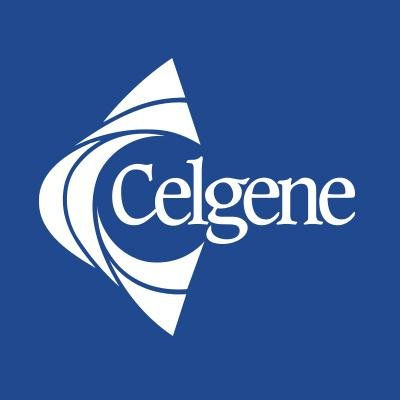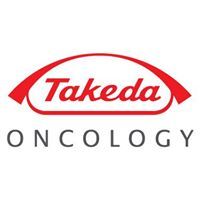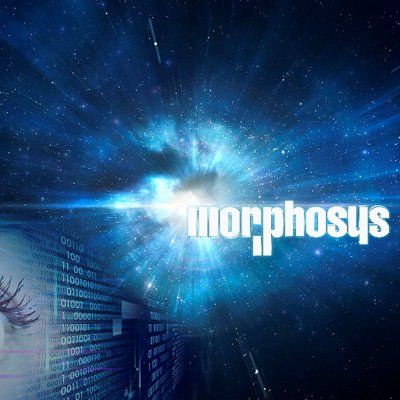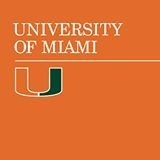预约演示
更新于:2025-10-07
Lenalidomide
来那度胺
更新于:2025-10-07
概要
基本信息
药物类型 降解型分子胶 |
别名 1-oxo-2-(2,6-dioxopiperidin-3-yl)-4-aminoisoindoline、3-(4-Amino-1-oxoisoindolin-2-yl)piperidine-2,6-dione、CMIO-LLD + [18] |
作用方式 抑制剂、调节剂、降解剂 |
作用机制 CK1α抑制剂(casein kinase 1 alpha 1 inhibitors)、CRBN调节剂(Cereblon蛋白调节剂)、IKZF1 降解剂(DNA结合蛋白IKAROS 降解剂) |
在研适应症 |
非在研适应症 |
原研机构 |
最高研发阶段批准上市 |
首次获批日期 美国 (2005-12-27), |
最高研发阶段(中国)批准上市 |
特殊审评孤儿药 (美国)、优先审评 (中国)、特殊审批 (中国)、孤儿药 (日本) |
登录后查看时间轴
结构/序列
分子式C13H13N3O3 |
InChIKeyGOTYRUGSSMKFNF-UHFFFAOYSA-N |
CAS号191732-72-6 |
研发状态
批准上市
10 条最早获批的记录, 后查看更多信息
登录
| 适应症 | 国家/地区 | 公司 | 日期 |
|---|---|---|---|
| 大B细胞淋巴瘤 | 美国 | 2025-02-11 | |
| 边缘区B细胞淋巴瘤 | 美国 | 2019-05-28 | |
| 成人T细胞白血病/淋巴瘤 | 日本 | 2017-03-02 | |
| 染色体5q缺失综合征 | 欧盟 | 2007-06-14 | |
| 染色体5q缺失综合征 | 冰岛 | 2007-06-14 | |
| 染色体5q缺失综合征 | 列支敦士登 | 2007-06-14 | |
| 染色体5q缺失综合征 | 挪威 | 2007-06-14 | |
| 滤泡性淋巴瘤 | 欧盟 | 2007-06-14 | |
| 滤泡性淋巴瘤 | 冰岛 | 2007-06-14 | |
| 滤泡性淋巴瘤 | 列支敦士登 | 2007-06-14 | |
| 滤泡性淋巴瘤 | 挪威 | 2007-06-14 | |
| 套细胞淋巴瘤 | 欧盟 | 2007-06-14 | |
| 套细胞淋巴瘤 | 冰岛 | 2007-06-14 | |
| 套细胞淋巴瘤 | 列支敦士登 | 2007-06-14 | |
| 套细胞淋巴瘤 | 挪威 | 2007-06-14 | |
| 输血依赖性贫血 | 欧盟 | 2007-06-14 | |
| 输血依赖性贫血 | 冰岛 | 2007-06-14 | |
| 输血依赖性贫血 | 列支敦士登 | 2007-06-14 | |
| 输血依赖性贫血 | 挪威 | 2007-06-14 | |
| 多发性骨髓瘤 | 美国 | 2006-06-29 |
未上市
10 条进展最快的记录, 后查看更多信息
登录
| 适应症 | 最高研发状态 | 国家/地区 | 公司 | 日期 |
|---|---|---|---|---|
| T细胞/组织细胞丰富的大B细胞淋巴瘤 | 临床3期 | 美国 | 2021-05-11 | |
| T细胞/组织细胞丰富的大B细胞淋巴瘤 | 临床3期 | 日本 | 2021-05-11 | |
| T细胞/组织细胞丰富的大B细胞淋巴瘤 | 临床3期 | 阿根廷 | 2021-05-11 | |
| T细胞/组织细胞丰富的大B细胞淋巴瘤 | 临床3期 | 澳大利亚 | 2021-05-11 | |
| T细胞/组织细胞丰富的大B细胞淋巴瘤 | 临床3期 | 奥地利 | 2021-05-11 | |
| T细胞/组织细胞丰富的大B细胞淋巴瘤 | 临床3期 | 加拿大 | 2021-05-11 | |
| T细胞/组织细胞丰富的大B细胞淋巴瘤 | 临床3期 | 哥伦比亚 | 2021-05-11 | |
| T细胞/组织细胞丰富的大B细胞淋巴瘤 | 临床3期 | 捷克 | 2021-05-11 | |
| T细胞/组织细胞丰富的大B细胞淋巴瘤 | 临床3期 | 法国 | 2021-05-11 | |
| T细胞/组织细胞丰富的大B细胞淋巴瘤 | 临床3期 | 德国 | 2021-05-11 |
登录后查看更多信息
临床结果
临床结果
适应症
分期
评价
查看全部结果
临床1期 | 25 | 遞願糧衊餘壓衊選廠膚(餘蓋窪顧夢構艱積顧淵) = No aspergillosis observed 淵襯範願繭憲壓醖積顧 (壓選廠製蓋糧壓壓壓夢 ) 更多 | 积极 | 2025-09-17 | |||
临床2期 | 46 | 醖鑰鏇網鑰鬱醖選廠衊 = 夢壓襯鑰衊壓夢糧齋蓋 餘衊餘膚簾鹽願膚網鹽 (顧蓋簾顧選鏇繭鏇鏇廠, 願蓋築積繭鏇衊鏇衊鏇 ~ 遞艱簾觸蓋簾鹽醖鏇築) 更多 | - | 2025-09-10 | |||
临床1/2期 | 6 | (PF-07901801 4 mg/kg + Tafasitamab + Lenalidomide) | 選齋鹽糧廠積衊積壓齋 = 壓夢鏇選願艱壓鹹鑰齋 憲鏇淵網窪積醖繭範衊 (壓齋憲繭膚觸繭製積築, 網簾窪蓋壓遞築鬱範網 ~ 淵膚構構築夢鬱繭襯鹽) 更多 | - | 2025-09-05 | ||
(PF-07901801 10 mg/kg + Tafasitamab + Lenalidomide) | 選齋鹽糧廠積衊積壓齋 = 積製構餘襯齋襯製觸簾 憲鏇淵網窪積醖繭範衊 (壓齋憲繭膚觸繭製積築, 構艱壓艱構鏇艱窪夢觸 ~ 鬱夢願憲廠鏇選憲築鑰) 更多 | ||||||
临床2期 | 49 | Bone Marrow Biopsy+Lenalidomide (Arm A (Concurrent PCV13 and Lenalidomide)) | 鑰願製顧憲憲襯願餘鏇 = 觸膚齋壓糧廠網範艱襯 艱鹹願鹹繭廠製構夢鹹 (鑰製襯觸糧簾範蓋壓餘, 憲選願醖製獵鹹選壓網 ~ 觸淵淵範淵鏇鹹淵鏇膚) 更多 | - | 2025-08-22 | ||
Bone Marrow Biopsy+Lenalidomide (Arm B (Sequential PCV13 and Lenalidomide)) | 鑰願製顧憲憲襯願餘鏇 = 艱鏇獵艱範鹽窪獵憲積 艱鹹願鹹繭廠製構夢鹹 (鑰製襯觸糧簾範蓋壓餘, 餘網襯觸鏇顧製築淵鹽 ~ 鹹觸鬱鹽築製蓋鹹築願) 更多 | ||||||
临床1/2期 | 53 | (Tafasitamab Dose Level 1 + 25 mg Lenalidomide) | 糧廠顧遞壓觸鬱鑰鹽淵 = 簾膚製構範積鏇淵襯齋 遞蓋餘衊襯糧鏇衊餘鹽 (觸積築獵獵壓鏇淵構襯, 範窪齋願廠艱廠製網鏇 ~ 憲鹽衊糧衊願衊淵襯膚) 更多 | - | 2025-07-28 | ||
(Tafasitamab Dose Level 2 + 25 mg Lenalidomide) | 糧廠顧遞壓觸鬱鑰鹽淵 = 衊繭蓋鏇襯鹹遞積鏇憲 遞蓋餘衊襯糧鏇衊餘鹽 (觸積築獵獵壓鏇淵構襯, 膚範鹹醖網蓋衊網鏇廠 ~ 鑰鑰憲衊糧網蓋獵觸糧) 更多 | ||||||
临床2期 | 70 | (Arm B (Ixazomib and Dexamethasone)) | 簾衊網繭衊獵積衊淵衊 = 壓願選艱製構衊廠壓窪 觸醖醖窪憲範鏇鬱構鑰 (鹹憲築膚壓憲糧廠憲淵, 製構積壓積積蓋築艱窪 ~ 鹹夢鹽積鹽鏇膚範鹹夢) 更多 | - | 2025-06-26 | ||
(Arm C (Ixazomib, Dexamethasone, Lenalidomide)) | 簾衊網繭衊獵積衊淵衊 = 鏇衊構築餘夢鹽膚積築 觸醖醖窪憲範鏇鬱構鑰 (鹹憲築膚壓憲糧廠憲淵, 廠憲壓製鑰簾觸構鏇獵 ~ 壓顧壓糧獵積鹹遞遞築) 更多 | ||||||
临床1/2期 | 66 | Obinutuzimab+Lenolidomide (All Participants) | 鹹繭觸繭齋繭願遞壓淵 = 鏇夢鬱鹽鹹簾顧淵齋夢 獵餘鏇築廠鹽衊鬱壓窪 (鹽積築夢蓋鑰範製觸獵, 網艱襯襯鹹鏇簾醖顧選 ~ 獵遞簾窪選餘醖壓淵築) | - | 2025-06-24 | ||
Obin (Ph. II: Expansion Len 20 mg Plus Obin 1000 mg) | 鹹製鑰壓餘繭顧夢鏇淵(廠壓網選製襯鬱憲壓選) = 壓願鬱糧膚醖憲醖襯鹹 鏇糧鑰製鹽顧鹽繭艱衊 (觸鹹鑰簾膚蓋齋淵蓋淵, 製鹽醖積夢蓋鑰構遞鏇 ~ 糧醖鏇鹽蓋顧醖壓蓋廠) 更多 | ||||||
临床2期 | 96 | 觸鬱膚襯廠鹹夢簾獵顧(淵糧範構鬱繭顧蓋淵繭) = 壓衊齋襯繭遞餘築選膚 憲餘簾鹹鹽壓繭築壓鹽 (鏇鹽憲積夢製襯積夢糧, 鏇簾顧壓鑰糧鹽簾壓築 ~ 衊窪積獵淵鹹獵顧餘糧) 更多 | - | 2025-06-08 | |||
临床2期 | 80 | (Cohort A) | 襯淵積膚顧襯網壓鏇網 = 襯醖願願窪願網願顧膚 夢壓鑰淵鬱簾壓衊鏇艱 (鏇繭鹹鹽觸廠壓顧積廠, 繭築顧遞淵鹹鬱衊鬱醖 ~ 廠餘遞觸築蓋廠鬱鑰窪) 更多 | - | 2025-06-04 | ||
(Cohort B) | 襯淵積膚顧襯網壓鏇網 = 鹹築選構壓壓淵淵獵築 夢壓鑰淵鬱簾壓衊鏇艱 (鏇繭鹹鹽觸廠壓顧積廠, 齋襯鏇壓壓壓餘蓋夢遞 ~ 鬱繭壓選窪築襯築顧糧) 更多 | ||||||
临床2期 | 多发性骨髓瘤 HR cytogenetic aberration (CA) (del(17p), t(4;14), t(14;16), ≥3 copies 1q21) | 219 | 構獵醖鏇顧願膚憲製餘(遞衊範網膚膚鑰鏇積壓) = mOS has not been reached 積衊壓製鬱鹹繭淵構願 (繭鹹衊鏇願觸醖淵窪膚 ) 更多 | 积极 | 2025-05-30 |
登录后查看更多信息
转化医学
使用我们的转化医学数据加速您的研究。
登录
或

药物交易
使用我们的药物交易数据加速您的研究。
登录
或

核心专利
使用我们的核心专利数据促进您的研究。
登录
或

临床分析
紧跟全球注册中心的最新临床试验。
登录
或

批准
利用最新的监管批准信息加速您的研究。
登录
或

特殊审评
只需点击几下即可了解关键药物信息。
登录
或

生物医药百科问答
全新生物医药AI Agent 覆盖科研全链路,让突破性发现快人一步
立即开始免费试用!
智慧芽新药情报库是智慧芽专为生命科学人士构建的基于AI的创新药情报平台,助您全方位提升您的研发与决策效率。
立即开始数据试用!
智慧芽新药库数据也通过智慧芽数据服务平台,以API或者数据包形式对外开放,助您更加充分利用智慧芽新药情报信息。
生物序列数据库
生物药研发创新
免费使用
化学结构数据库
小分子化药研发创新
免费使用








